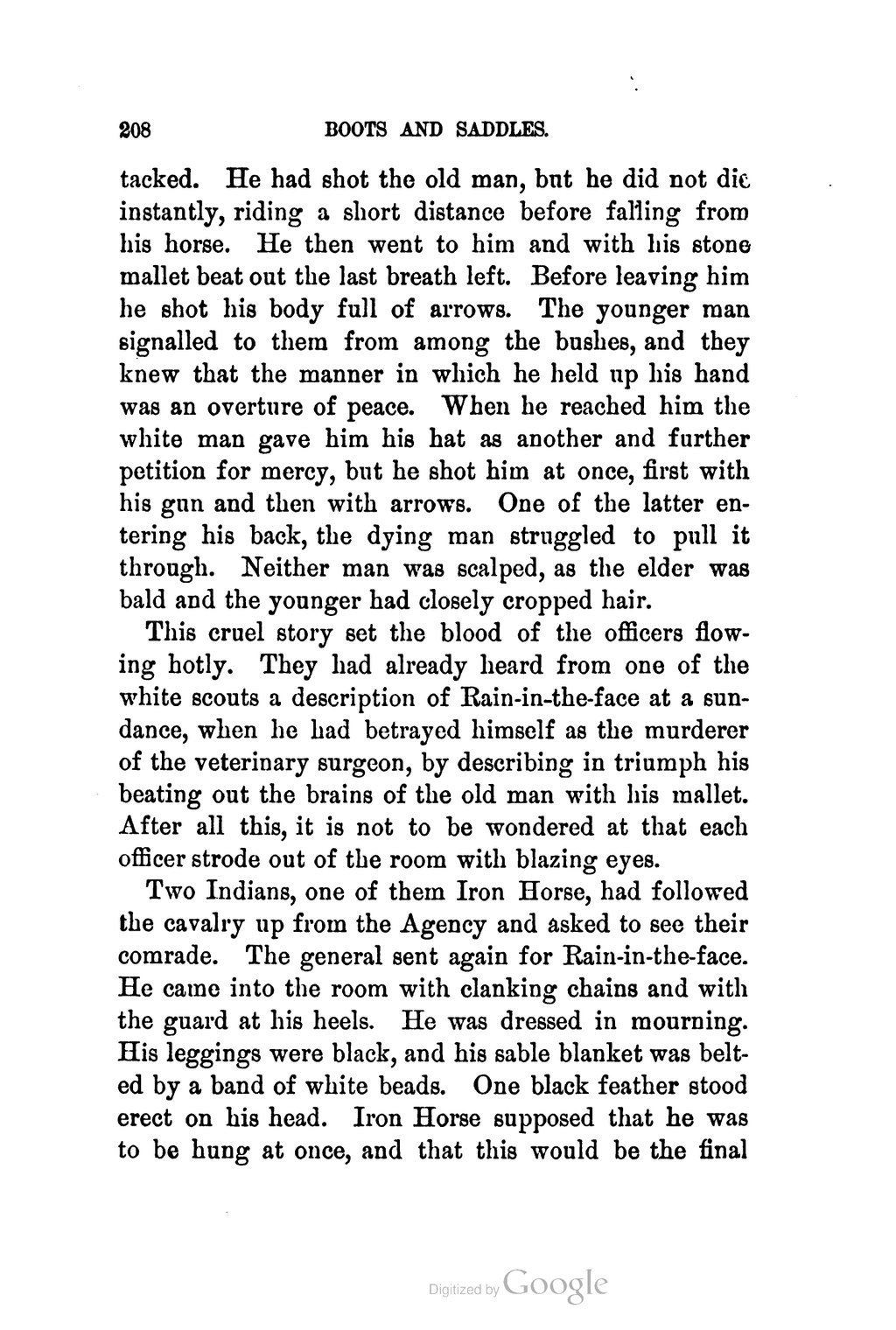tacked. He had shot the old man, but he did not die instantly, riding a short distance before falling from his horse. He then went to him and with his stone mallet beat out the last breath left. Before leaving him he shot his body full of arrows. The younger man signalled to them from among the bushes, and they knew that the manner in which he held up his hand was an overture of peace. When he reached him the white man gave him his hat as another and further petition for mercy, but he shot him at once, first with his gun and then with arrows. One of the latter entering his back, the dying man struggled to pull it through. Neither man was scalped, as the elder was bald and the younger had closely cropped hair.
This cruel story set the blood of the officers flowing hotly. They had already heard from one of the white scouts a description of Rain-in-the-face at a sun-dance, when he had betrayed himself as the murderer of the veterinary surgeon, by describing in triumph his beating out the brains of the old man with his mallet. After all this, it is not to be wondered at that each officer strode out of the room with blazing eyes.
Two Indians, one of them Iron Horse, had followed the cavalry up from the Agency and asked to see their comrade. The general sent again for Rain-in-the-face. He came into the room with clanking chains and with the guard at his heels. He was dressed in mourning. His leggings were black, and his sable blanket was belted by a band of white beads. One black feather stood erect on his head. Iron Horse supposed that he was to be hung at once, and that this would be the final

